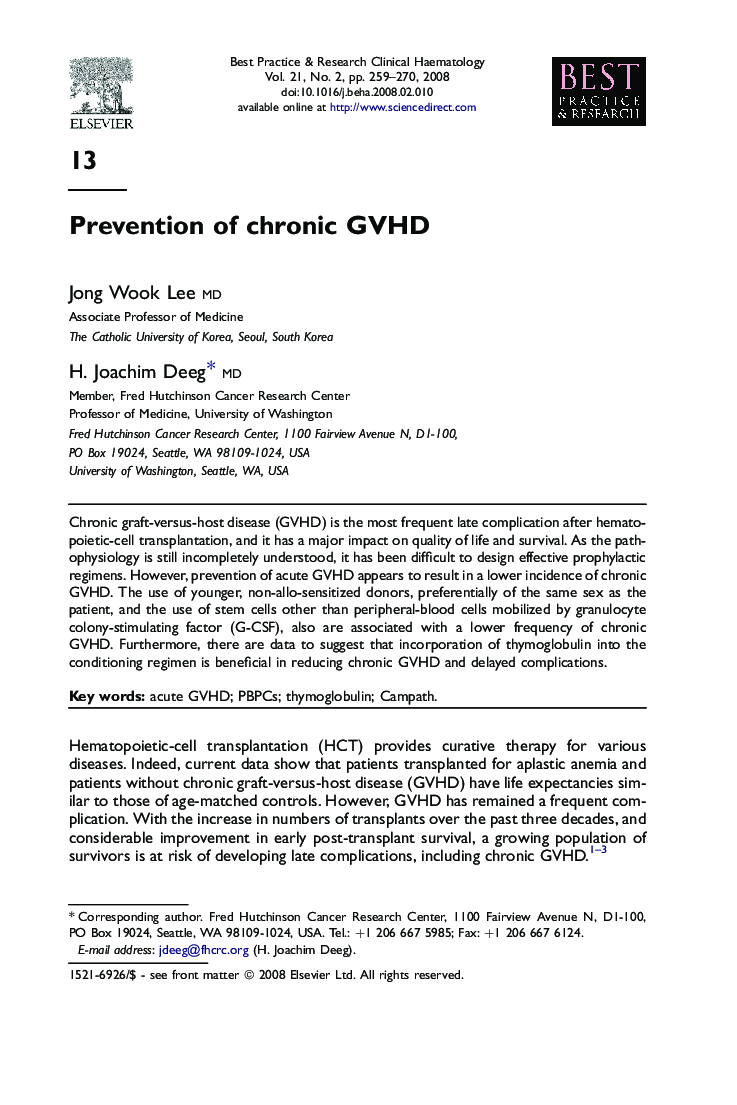| Article ID | Journal | Published Year | Pages | File Type |
|---|---|---|---|---|
| 2100468 | Best Practice & Research Clinical Haematology | 2008 | 12 Pages |
Chronic graft-versus-host disease (GVHD) is the most frequent late complication after hematopoietic-cell transplantation, and it has a major impact on quality of life and survival. As the pathophysiology is still incompletely understood, it has been difficult to design effective prophylactic regimens. However, prevention of acute GVHD appears to result in a lower incidence of chronic GVHD. The use of younger, non-allo-sensitized donors, preferentially of the same sex as the patient, and the use of stem cells other than peripheral-blood cells mobilized by granulocyte colony-stimulating factor (G-CSF), also are associated with a lower frequency of chronic GVHD. Furthermore, there are data to suggest that incorporation of thymoglobulin into the conditioning regimen is beneficial in reducing chronic GVHD and delayed complications.
